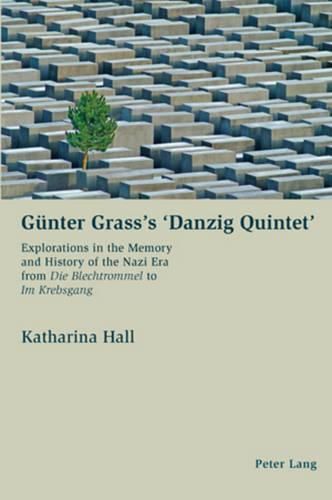Readings Newsletter
Become a Readings Member to make your shopping experience even easier.
Sign in or sign up for free!
You’re not far away from qualifying for FREE standard shipping within Australia
You’ve qualified for FREE standard shipping within Australia
The cart is loading…






This study extends the long-established notion of Grass’s ‘Danzig Trilogy’ to that of the ‘Danzig Quintet’ - a literary project of epic proportions, which explores the evolution of Germany’s relationship to its Nazi past over a period of forty years.
The interlocking stories of Die Blechtrommel (1959), Katz und Maus (1961), Hundejahre (1963), oertlich betaubt (1969) and Im Krebsgang (2002) are mediated by the memory and language of seven first-person narrators. Using the dual conceptualisation of memory developed by Freud and Lacan - ‘reliving’ versus ‘recollecting’ the past - the author shows how these narrators’ accounts assert the reality of the Holocaust (as well as German wartime suffering), while highlighting the reluctance of ordinary Germans to admit their involvement in the Nazi regime.
This delineation of the complex relationship of three generations to their history is deepened by the intertextual nature of the quintet. Using the theory of Peter Brooks, Umberto Eco, Shoshana Felman and Hayden White, the study explores how Grass’s textual strategies encourage the reader to view all five works as one overarching narrative, while simultaneously avoiding any literary or historical closure. In the process, the study places each book in the context of its moment of production, and also considers the implications of Grass’s belated admission, in August 2006, that he served with the Waffen-SS during the final months of World War Two.
$9.00 standard shipping within Australia
FREE standard shipping within Australia for orders over $100.00
Express & International shipping calculated at checkout
This study extends the long-established notion of Grass’s ‘Danzig Trilogy’ to that of the ‘Danzig Quintet’ - a literary project of epic proportions, which explores the evolution of Germany’s relationship to its Nazi past over a period of forty years.
The interlocking stories of Die Blechtrommel (1959), Katz und Maus (1961), Hundejahre (1963), oertlich betaubt (1969) and Im Krebsgang (2002) are mediated by the memory and language of seven first-person narrators. Using the dual conceptualisation of memory developed by Freud and Lacan - ‘reliving’ versus ‘recollecting’ the past - the author shows how these narrators’ accounts assert the reality of the Holocaust (as well as German wartime suffering), while highlighting the reluctance of ordinary Germans to admit their involvement in the Nazi regime.
This delineation of the complex relationship of three generations to their history is deepened by the intertextual nature of the quintet. Using the theory of Peter Brooks, Umberto Eco, Shoshana Felman and Hayden White, the study explores how Grass’s textual strategies encourage the reader to view all five works as one overarching narrative, while simultaneously avoiding any literary or historical closure. In the process, the study places each book in the context of its moment of production, and also considers the implications of Grass’s belated admission, in August 2006, that he served with the Waffen-SS during the final months of World War Two.